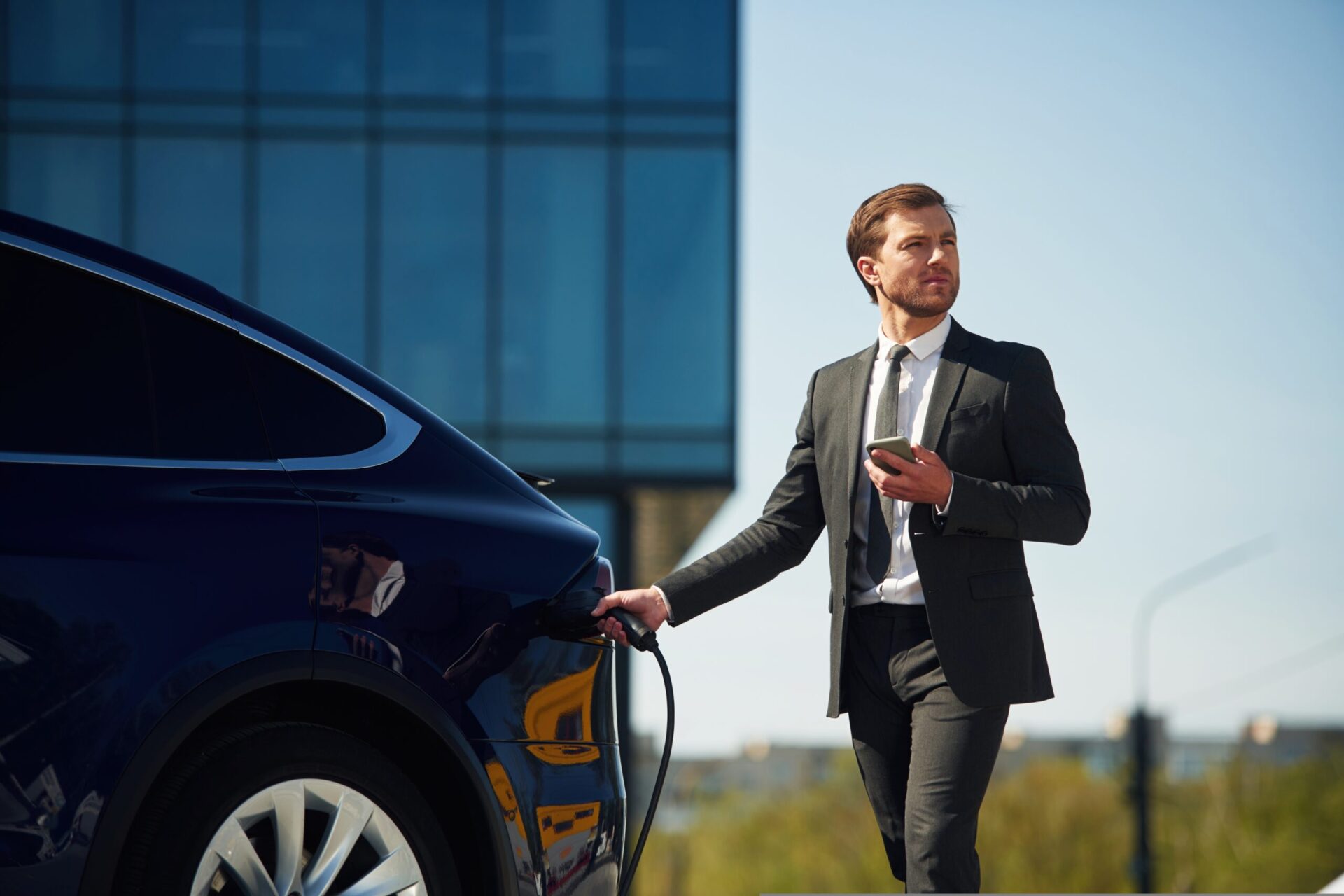- 52% of employers cite sustainability goals as a major reason for introducing a salary sacrifice car scheme
- 24% say carbon offsetting and reducing Scope 3 emissions were key drivers
- 68% believe it’s important to include a COâ‚‚ cap when selecting a car scheme provider
- Tusker offsets all tailpipe and grid charging emissions, supporting real-time CSR reporting
- University Hospital Southampton offset +2,500 tonnes of carbon to date
London, UK, 2 June 2025 – Environmental targets continue to climb higher on the corporate agenda, as over half of UK employers (52%) say that meeting sustainability goals was a major reason for implementing a salary sacrifice car scheme, according to the new ‘Driving Loyalty Through Electric Cars’ report from salary sacrifice car scheme provider, Tusker.
The research shows a growing number of employers are leveraging EV salary sacrifice schemes not just as a benefit for staff, but as a strategic tool to reduce carbon emissions, demonstrate environmental leadership and support ESG objectives.
Of those surveyed, nearly a quarter (24%) said they introduced the scheme to help offset carbon and reduce their Scope 3 emissions – the indirect emissions that stem from employee commuting and business travel. In addition, 68% of employers said it was either ‘somewhat’ or ‘extremely’ important to be offered a CO₂ cap when choosing a provider, underlining the pressure many organisations face to evidence their climate commitments.
Cheryl Clements, Head of Business Development at Tusker, said: “Organisations are under mounting pressure to demonstrate measurable progress on their sustainability targets. The fact that over half of employers say sustainability goals are a major reason for adopting salary sacrifice schemes shows that environmental concerns are firmly embedded in business decision-making. As a result, choosing benefits that support sustainability is increasingly seen as a responsible and strategic move.â€
Tusker’s scheme offsets emissions from both vehicle tailpipes and grid-based EV charging, going beyond the usual industry standards to help customers deliver a more sustainable and carbon-efficient transport offering*. This is especially important for large employers or public sector bodies with established net-zero targets.
University Hospital Southampton, which has been running an EV salary sacrifice scheme since 2015, has already offset more than 2,500 tonnes of carbon to date. Sophie Limb, HR Project Manager, explained: “We believe in offering a wide array of options that can improve staff wellbeing in some meaningful way – whether that’s physical, emotional, financial or environmental.â€
Elsewhere, employers like Landsec have seen sustainability and employee engagement go hand in hand. Following the launch of its EV scheme in 2024, Landsec reported a 26-point rise in employees feeling their benefits package met their needs. The scheme, introduced in response to employee demand for more sustainable benefits, saw 30% of eligible staff engage in the first six months alone.
Clements added: “Sustainability is no longer just a corporate nice-to-have but a defining part of the employee experience. Our scheme empowers organisations to deliver on their environmental goals while offering a practical, tax-efficient benefit that employees genuinely value.â€
—
Tusker is the UK’s leader in salary sacrifice cars. Part of Lloyds Banking Group, it has more than 15 years’ experience in offering an affordable way for employees to drive a new, fully insured, and maintained car. Its scheme, which is available to over 1.8 million UK employees, offers a range of options, from pure electric cars to hybrids and even traditional petrol and diesel vehicles. It provides a tailored scheme for organisations’ individual needs.
*Please note, we use carbon offsetting for vehicle tailpipe emissions and grid charging emissions only. We do not offset the carbon footprint to manufacture the vehicle.




